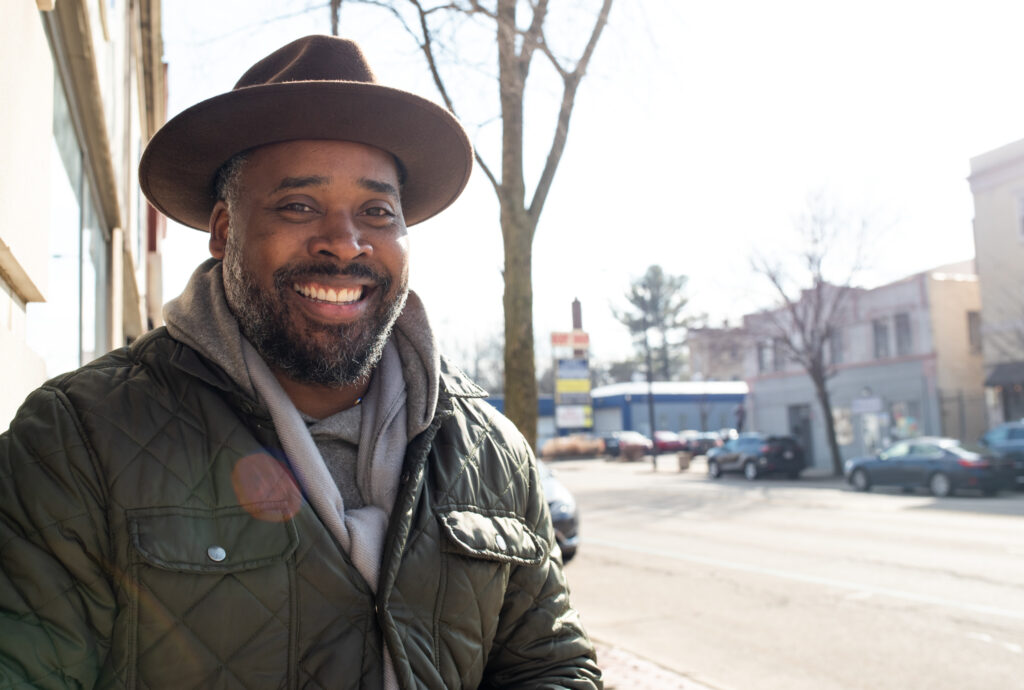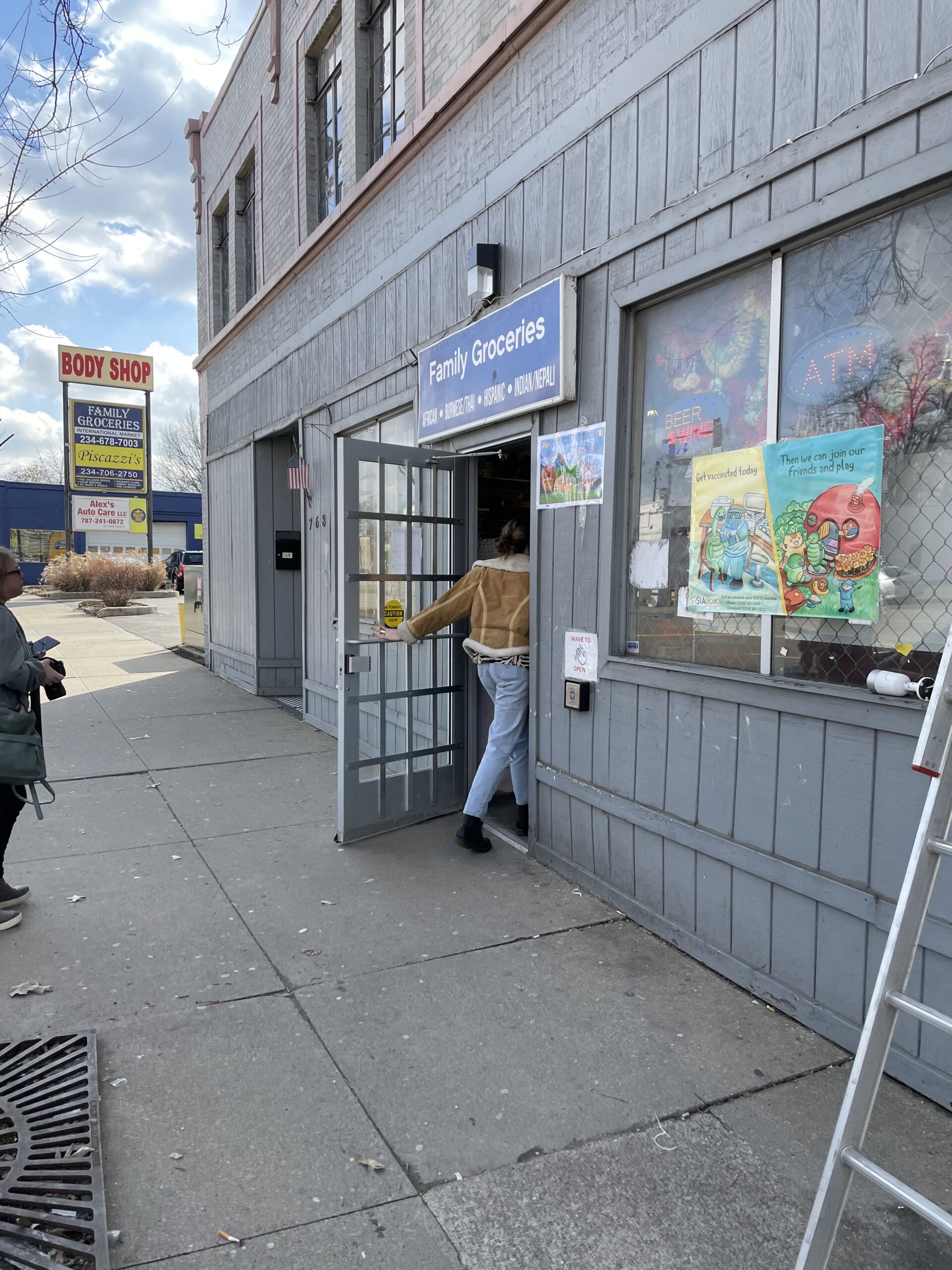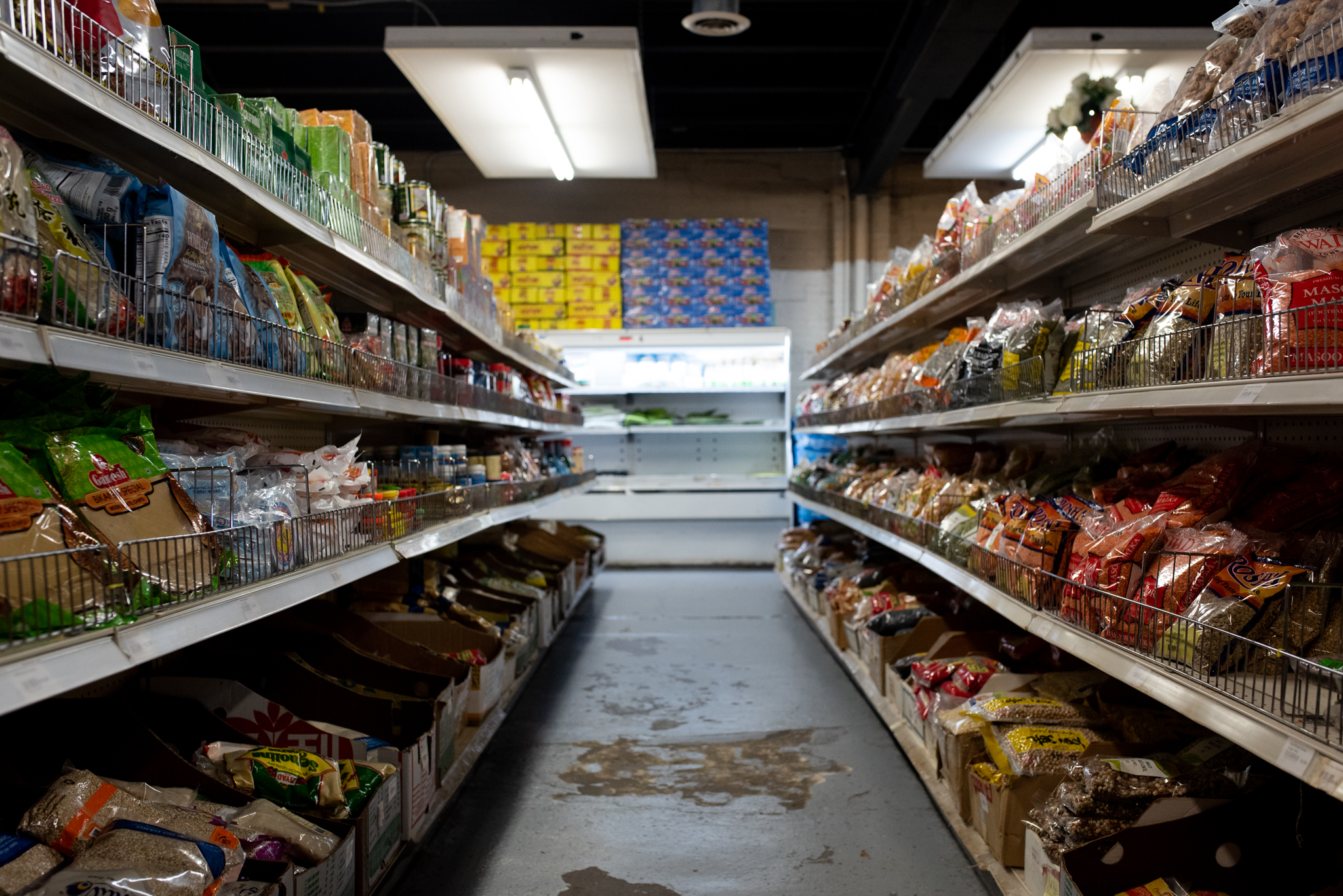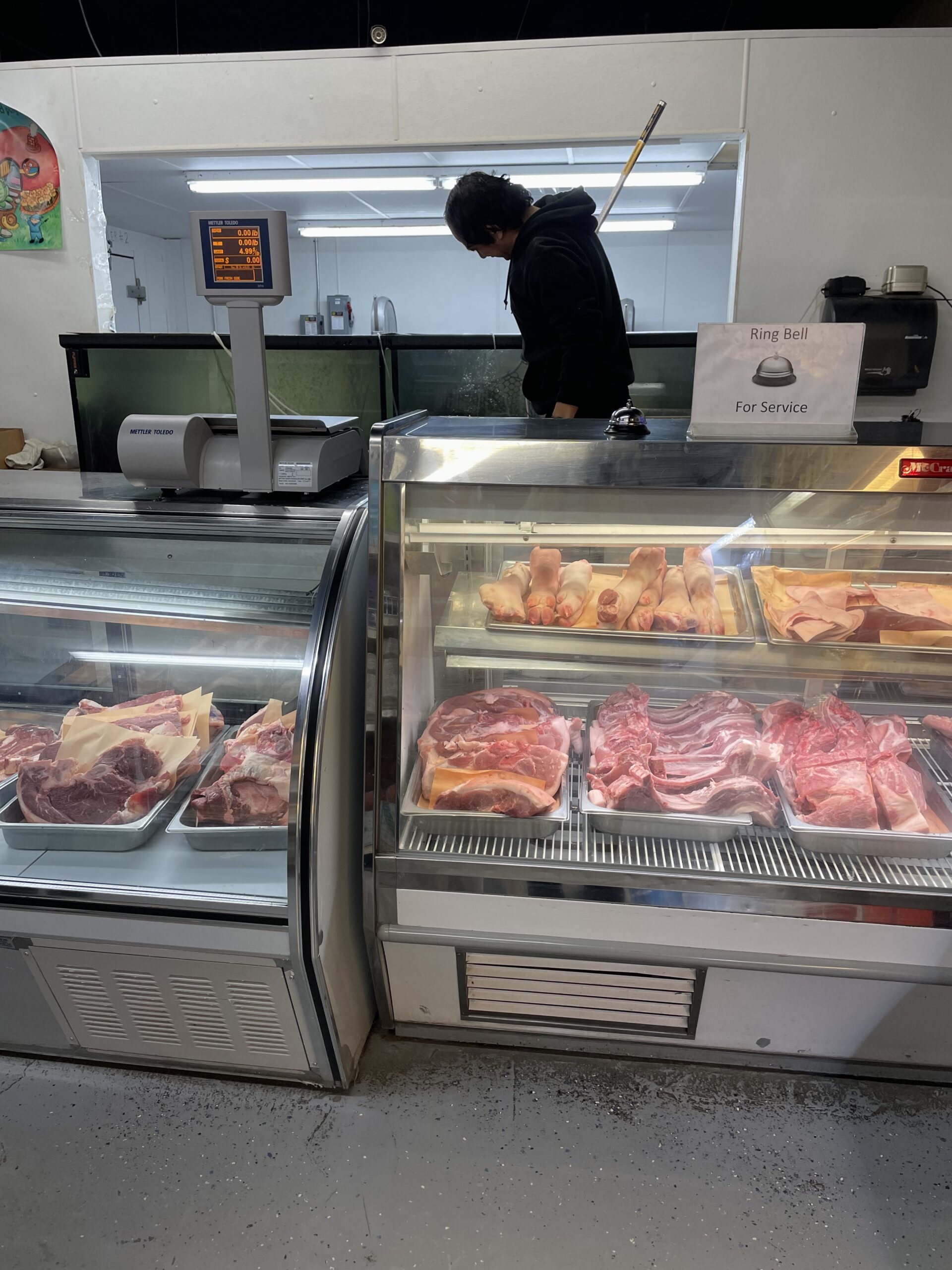By Sean Blevins
A light drizzle began to fall and steam was starting to rise through the numerous cracks in the unlevel sidewalks, but business went on as usual in Akron’s North Hill neighborhood.
The people roaming the narrow streets of Akron’s “international district” on the afternoon of March 9 cracked open their umbrellas and continued about their day, largely undeterred by the musty weather.
Unfavorable weather typically leads to less revenue for businesses because people are less willing to go out, but customers kept pouring into the ethnic pop-up shops and grocery stores where they were buying everything from tea sets to spices to Korean dumplings.
The rain eventually stopped after nearly 30 minutes and a strong breeze overtook the humid air. The ambiance of the neighborhood flipped from gloomy to upbeat shortly after the clouds parted and the sun came back out.
North Hill has seen some tough times over the years, but it is currently experiencing a cultural renaissance. An entrepreneurial push is sweeping through the neighborhood. The number of vacant buildings is dwindling as businesses are finding spots to flourish. A multitude of ghost kitchens –– a style of delivery-focused restaurants often hiding in plain sight –– have appeared. The neighborhood is a place where people want to be again.
In 2015, Summit County and the city of Akron passed resolutions that announced the city was dedicated to becoming a “welcoming community.” That ushered in an era of change.
The resolutions called for Akron to receive more federal, state and local funding. Several local non-profits were created and appointed for the purpose of helping refugees assimilate into the area.

“We teach people how to ‘North Hill,’” said Justin Chenault
Justin Chenault, interIm executive director of the north hill community development corporation. PHOTO by KELLY KRABILL
The NHCDC’s mission is to unite the community and stimulate its economy through the area’s people, places and programs. The organization builds cultural cohesion by hosting community events in public spaces like People’s Park, The Maker House, The Exchange House, NoHi Pop-Up & Cafe and NoTique.
Chenault said oftentimes the NHCDC will introduce a group of the area’s newly settled refugees to local grocery stores and encourage them to use those instead of shopping at big box stores such as Walmart or Target.
North Hill has been one of the primary refugee resettlement hubs in northeast Ohio for nearly two centuries, but only recently has the area embraced its melting pot nature. Chenault added that it took years for its residents of 35 different nationalities to learn how to cohesively function in the same area.
The north Akron neighborhood has become a second home to immigrants from Afghanistan, Vietnam, Bhutan, Syria, Iraq, Nepal, Burma and many other countries.
The NHCDC received a gift of $4,800 last month to start developing financial literacy and mental health programs. Chenault said some of the funds will be allocated towards the creation of a diabetes education program to address communities in the area with typically high rates of hypertension. The organization has also had a hand in facilitating the construction of affordable housing for immigrants as North Hill braces for the impending arrival of hundreds of Afghan refugees.
Chenault said it was only a few months ago when a concerning amount of businesses in North Hill were being boarded up and buildings were being vacated. Since then, the economic pendulum has swung in the entrepreneurs’ favor. He attributes some of the area’s socioeconomic progress to the influx of skilled refugee artisans and entrepreneurs.
The Nepali and the Bhutanese communities in North Hill are the two ethnic groups in the area who have seen the most economic success in recent times. Akron welcomed its first family of Bhutanese refugees of Nepali descent in 2008, according to a 2014 Akron Beacon Journal report. They are geographically and ancestrally intertwined, so them prospering at the same time does not come as a surprise.
In one part of North Hill, there are 13 Nepali grocery stores located within a two-mile radius of each other. That may seem to be an abundance of competition, but Chenault said they coexist just fine and sometimes they’ll even exchange goods with each other.

Photo by Grace Christopher.

Photo by Kelly Krabill.

The Bhutanese population in North Hill has seen a great deal of economic growth over the last year as well; however, that success has not come without its share of business disputes. Most notably, a lengthy squabble with the Italian community over the purchase price of its beloved Italian Center on 134 E. Tallmadge Ave.
Chenault noted that the Bhutanese community in Akron routinely does the impossible. They banded together to raise $6.5 million to buy the Italian Center in February, but the Italians refused to sell it to them despite that being their original asking price.
The Bhutanese regrouped and countered with $2 million more, which was enough to complete the sale. They wanted a communal place to hold events as early as 2018 –– and they were willing to pay anything for the price of happiness. The building was renamed to the Namaste Center to align it with their culture and it is now open to the public.
The Nepali and the Bhutanese communities aren’t the only ones taking advantage of the economic swing in North Hill, but they are the ones making their presence felt the most.
The transformation of the neighborhood has old residents wanting to come back and are coming from all over to enjoy the “international district.”
North Hill is a place where culture is cultivated. It is a safe haven. It is a sanctuary. It is home.
